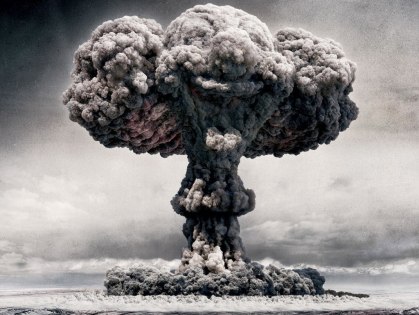
Worst-case thinking means generally bad decision making for several reasons. First, it’s only half of the cost-benefit equation. Every decision has costs and benefits, risks and rewards. By speculating about what can possibly go wrong, and then acting as if that is likely to happen, worst-case thinking focuses only on the extreme but improbable risks and does a poor job at assessing outcomes.The other extreme is militant positive thinking. The modern condition seems to be a constant fluctuation between these two extremes: irrational fear and irrational optimism.
Second, it’s based on flawed logic. It begs the question by assuming that a proponent of an action must prove that the nightmare scenario is impossible.
Third, it can be used to support any position or its opposite. If we build a nuclear power plant, it could melt down. If we don’t build it, we will run short of power and society will collapse into anarchy. If we allow flights near Iceland’s volcanic ash, planes will crash and people will die. If we don’t, organs won’t arrive in time for transplant operations and people will die. If we don’t invade Iraq, Saddam Hussein might use the nuclear weapons he might have. If we do, we might destabilize the Middle East, leading to widespread violence and death.
Of course, not all fears are equal. Those that we tend to exaggerate are more easily justified by worst-case thinking. So terrorism fears trump privacy fears, and almost everything else; technology is hard to understand and therefore scary; nuclear weapons are worse than conventional weapons; our children need to be protected at all costs; and annihilating the planet is bad. Basically, any fear that would make a good movie plot is amenable to worst-case thinking.

No comments:
Post a Comment